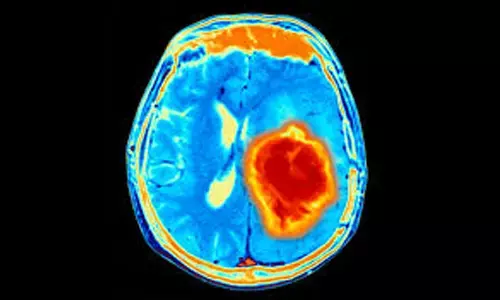- Home
- Medical news & Guidelines
- Anesthesiology
- Cardiology and CTVS
- Critical Care
- Dentistry
- Dermatology
- Diabetes and Endocrinology
- ENT
- Gastroenterology
- Medicine
- Nephrology
- Neurology
- Obstretics-Gynaecology
- Oncology
- Ophthalmology
- Orthopaedics
- Pediatrics-Neonatology
- Psychiatry
- Pulmonology
- Radiology
- Surgery
- Urology
- Laboratory Medicine
- Diet
- Nursing
- Paramedical
- Physiotherapy
- Health news
- Fact Check
- Bone Health Fact Check
- Brain Health Fact Check
- Cancer Related Fact Check
- Child Care Fact Check
- Dental and oral health fact check
- Diabetes and metabolic health fact check
- Diet and Nutrition Fact Check
- Eye and ENT Care Fact Check
- Fitness fact check
- Gut health fact check
- Heart health fact check
- Kidney health fact check
- Medical education fact check
- Men's health fact check
- Respiratory fact check
- Skin and hair care fact check
- Vaccine and Immunization fact check
- Women's health fact check
- AYUSH
- State News
- Andaman and Nicobar Islands
- Andhra Pradesh
- Arunachal Pradesh
- Assam
- Bihar
- Chandigarh
- Chattisgarh
- Dadra and Nagar Haveli
- Daman and Diu
- Delhi
- Goa
- Gujarat
- Haryana
- Himachal Pradesh
- Jammu & Kashmir
- Jharkhand
- Karnataka
- Kerala
- Ladakh
- Lakshadweep
- Madhya Pradesh
- Maharashtra
- Manipur
- Meghalaya
- Mizoram
- Nagaland
- Odisha
- Puducherry
- Punjab
- Rajasthan
- Sikkim
- Tamil Nadu
- Telangana
- Tripura
- Uttar Pradesh
- Uttrakhand
- West Bengal
- Medical Education
- Industry
Modified form of Poliovirus shows promise as cancer vaccine

"Polioviruses have several advantages for generating antigen-specific CD8 T-cells as a potential cancer vaccine vector," said senior author Matthias Gromeier, M.D., who developed the poliovirus-based therapy as a member of Duke's Preston Robert Tisch Brain Tumor Center.
DURHAM, N.C. -- A modified form of poliovirus, pioneered at Duke Cancer Institute as a therapy for glioblastoma brain tumors, appears in laboratory studies to also have applicability for pediatric brain tumors when used as part of a cancer vaccine.
In preclinical studies using mice and human cancer cells, an injection of the modified poliovirus vector instigated an immune response that homed in on mutated cancer cells that predominate in diffuse midline glioma (DMG) tumors. Cancer strikes children and is universally deadly.
Reporting this week in the journal Nature Communications, the researchers described how a polio-rhinovirus chimera (PVSRIPO), modified to express a mutate tumor antigen found in DMG, is able to infect and induce the activity of dendritic cells.
Dendritic cells prime tumor antigen-specific T-cells to migrate to the tumor site, attack tumor cells, delay tumor growth and enhance survival in animal tumor models. But their activity can be difficult to control.
"Polioviruses have several advantages for generating antigen-specific CD8 T-cells as a potential cancer vaccine vector," said senior author Matthias Gromeier, M.D., who developed the poliovirus-based therapy as a member of Duke's Preston Robert Tisch Brain Tumor Center.
"They have naturally evolved to have a relationship with the human immune system, activating dendritic cells, inducing CD8 T-cell immunity and eliciting inflammation. As a result, they lack interference with innate or adaptive immunity."
Gromeier said the vaccine approach continues to be tested with the goal of initiating a phase 1 clinical trial.
"We are hopeful that this approach could be tested as a potential therapy for DMG tumors, which exact a terrible burden on children and their families," Gromeier said.
For more details click on the link:
Mosaheb, M.M., Dobrikova, E.Y., Brown, M.C. et al. Genetically stable poliovirus vectors activate dendritic cells and prime antitumor CD8 T cell immunity. Nat Commun 11, 524 (2020). https://doi.org/10.1038/s41467-019-13939-z
Hina Zahid Joined Medical Dialogue in 2017 with a passion to work as a Reporter. She coordinates with various national and international journals and association and covers all the stories related to Medical guidelines, Medical Journals, rare medical surgeries as well as all the updates in the medical field. Email: editorial@medicaldialogues.in. Contact no. 011-43720751
Dr Kamal Kant Kohli-MBBS, DTCD- a chest specialist with more than 30 years of practice and a flair for writing clinical articles, Dr Kamal Kant Kohli joined Medical Dialogues as a Chief Editor of Medical News. Besides writing articles, as an editor, he proofreads and verifies all the medical content published on Medical Dialogues including those coming from journals, studies,medical conferences,guidelines etc. Email: drkohli@medicaldialogues.in. Contact no. 011-43720751


